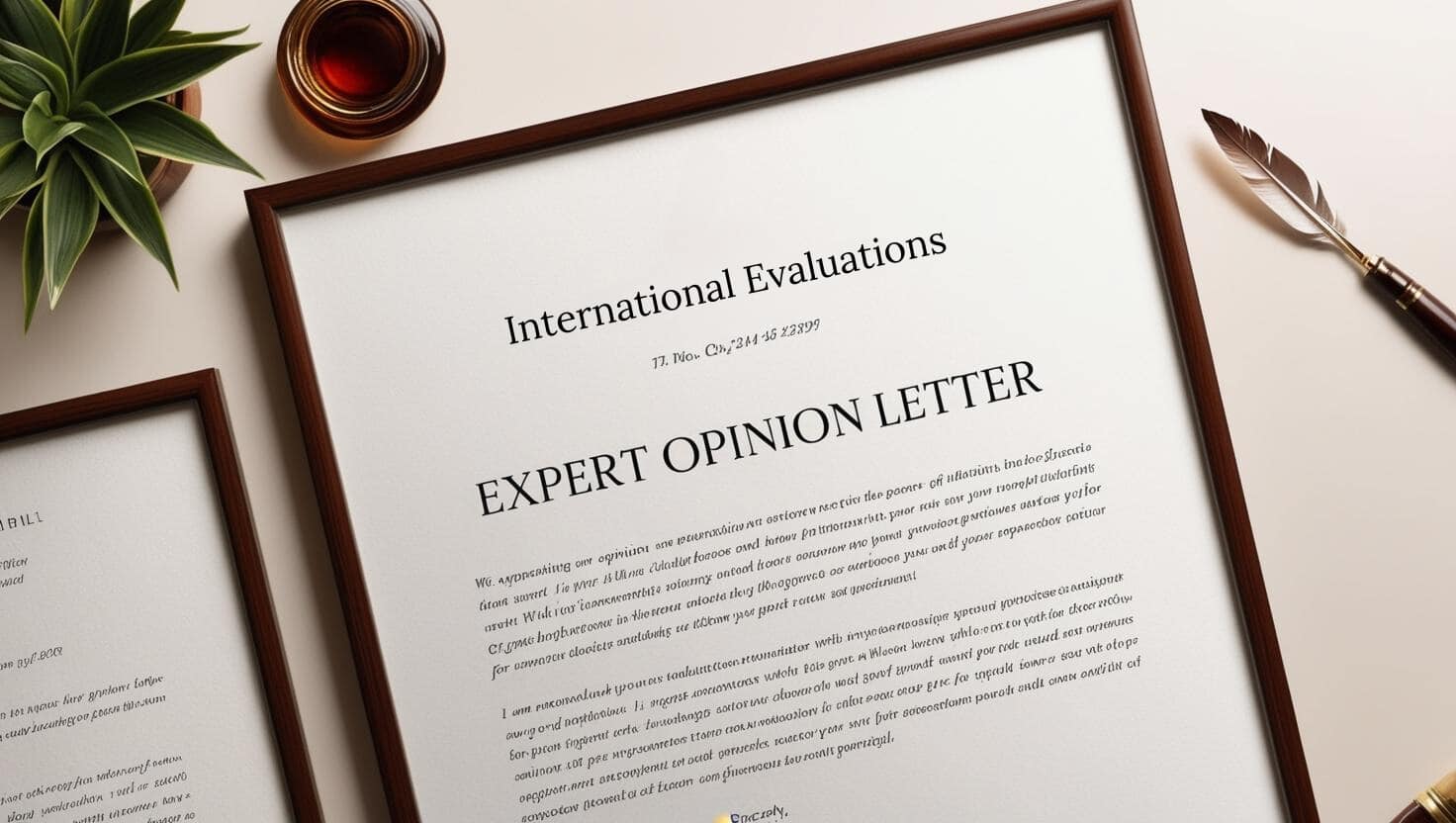Introduction
In a significantly globalized world, the significance of examining work experience for international markets can not be downplayed. As businesses broaden their horizons across borders, comprehending how to effectively evaluate work experience ends up being crucial. The need for precise academic credential evaluation and international credential assessment services arises, with a focus on aligning expert certifications with local requirements.

This post delves into the vital factors to consider and strategies associated with evaluating work experience for international markets. By taking a look at various elements including course-by-course credential evaluation, work experience evaluation, and the function of professional viewpoint letters, we aim to provide comprehensive insights that deal with experts, employers, and critics alike.
Evaluating Work Experience for International Markets: Key Factors To Consider and Strategies
When evaluating work experience worldwide, several key factors to https://internationalevaluations.com/rfe-solutions/ consider enter into play. Each nation has its own set of requirements and practices regarding education and work. For that reason, understanding these nuances is vital in guaranteeing a trusted evaluation of qualifications.
Understanding Global Standards in Work Experience Evaluation
Countries vary considerably in terms of expert accreditation and acknowledgment of credentials. For instance, what is deemed appropriate work experience in one country might not hold the very same weight in another. Hence:
- Researching Country-Specific Requirements: Familiarizing oneself with the specific standards set by regulative bodies in target countries is crucial. Utilizing Credential Evaluation Services: Organizations focusing on international credential assessment can supply important insight into how foreign certifications are seen domestically.
The Role of Academic Credential Evaluation
Academic credentials serve as a foundation upon which work experience is frequently examined. Correct assessment guarantees that a candidate's academic background aligns with market expectations.
Types of Academic Credential Evaluations:- Course-by-Course Credential Evaluation: This technique uses in-depth insights into private courses taken by prospects, translating them into comparable credits within the host nation's education system. General Evaluations: These provide a summary of a prospect's credentials but may lack the granularity required for particular expert sectors.
Importance of Course-by-Course Credential Evaluation
A course-by-course method allows working with supervisors to evaluate prospects more comprehensively based upon their scholastic achievements.
- Detailed Insight: This approach breaks down each course completed by a private, helping evaluate whether they fulfill specific educational requirements expressed by regulative bodies or employers. Facilitating Task Matching: By matching specific courses with job requirements, organizations can make sure that candidates have precisely the ability needed for roles within their industry.
Work Experience Evaluation: An Extensive Approach
Evaluating work experience transcends simply taking a look at task titles; it needs an analytical view that considers different elements such as duration, relevance, and depth of duties undertaken.
Factors Influencing Work Experience Evaluation
Relevance to Position Sought: How closely does previous work correlate to the potential role? Duration and Quality of Experience: Prolonged period might suggest stability however does it also show development and development? Nature of Responsibilities Undertaken: What were the specifics? Did the candidate lead projects or contribute considerably to group goals?Expert Opinion Letters as a Resource
A specialist opinion letter acts as an important tool during the evaluation procedure:
- Defining Expertise: An expert's insights can clarify complex functions and responsibilities undertaken in previous positions. Supporting Documentation: Such letters can reinforce applications when proving one's viability based upon non-traditional experiences.
Developing Effective Service Plan Evaluations
For experts intending to develop themselves globally through entrepreneurship or consultancy roles, company strategy assessments become paramount.
Understanding Market Needs: Carrying out extensive research into local market needs helps people in tailoring their organization propositions effectively. Evaluating Rival Landscape: Comprehending existing competitors will assist form company techniques accordingly. Financial Viability Assessments: Financial forecasts should be reasonable based on readily available data from comparable existing services within a region.Bridging Cultural Differences in Work Experience
Navigating cultural subtleties is critical when evaluating international qualifications:

- Keeping an open mind towards various working styles promotes much better combination into diverse environments. Awareness of cultural standards can enhance communication among diverse teams.
Utilizing Technology for Efficient Evaluation
The digital period has actually revolutionized how examinations are carried out:
- Online platforms help with much easier submission of files needed for credential evaluations. Remote assessments suggest that geographical barriers are less hindering than before.
Challenges Faced Throughout International Work Experience Evaluations
Evaluators often experience numerous obstacles while evaluating global qualifications:
Lack of Standardization Across Borders Variability in Educational Systems Language Barriers Restraining Clear Communication Insufficient Paperwork from CandidatesStrategies for Getting rid of Challenges
To alleviate these obstacles:
- Engage with regional experts acquainted with local practices. Use standardized structures where applicable to enhance assessments.
FAQs
What is academic credential evaluation?- It describes evaluating academic qualifications from one country against those acknowledged in another nation to identify equivalency.
- These services examine foreign academic documentation to determine its validity and equivalence within regional contexts.
- This includes examining each individual course taken by a prospect rather of providing a general overview, focusing on credit equivalencies.
- It assists companies assess if candidates possess appropriate skills essential for success in specific functions within their organization.
- It's a document provided by recognized specialists that validates a person's past experiences or instructional background concerning industry standards.
- Ensure all records are official copies, include in-depth descriptions of roles held throughout employment, and collect any additional supporting files like reference letters or awards gotten during your profession journey.
Conclusion
Evaluating work experience for global markets provides both chances and obstacles alike; however, armed with appropriate techniques and knowledge about key factors to consider such as academic credential evaluations and professional viewpoint letters-- experts can navigate these waters successfully! The globalization trend continues unabated; hence investing time into comprehending numerous approaches towards evaluating certifications throughout borders will pay dividends-- both personally and professionally-- allowing individuals to flourish globally while contributing value-added viewpoints stemmed from varied backgrounds!